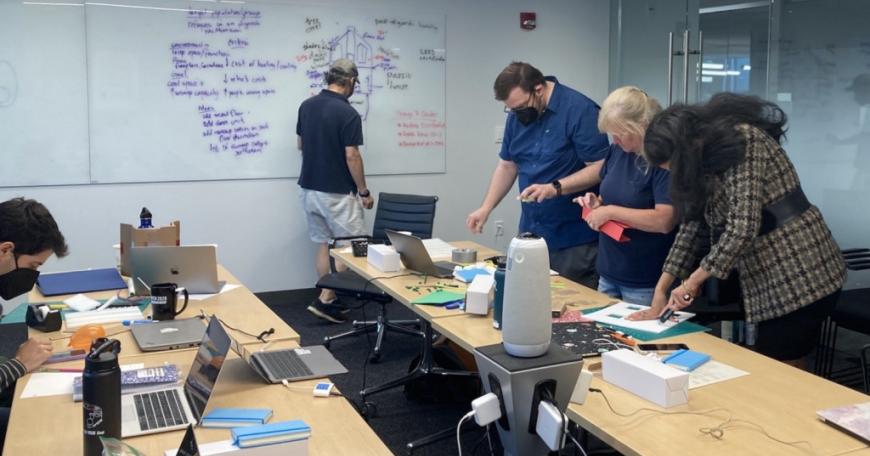
Immersive training program at MIT encourages educators to go “full STEAM ahead” with innovative…
Immersive training program at MIT encourages educators to go “full STEAM ahead” with innovative learning projects
Enrichment opportunity offers space to thoughtfully explore new teaching methodologies
As part of their ongoing efforts to make transformational learning accessible to more students, Full STEAM Ahead (FSA), MIT’s hands-on K-12 learning initiative launched at the onset of the pandemic, ran a new program focused on teaching this summer. The Full STEAM Ahead Educators Immersion Program (FSAEIP) used FSA’s guiding learning sciences and principles to help a cohort of local middle and high school-level educators co-design innovation programs that address the particular needs of their schools and students. An MIT team comprising undergraduate and graduate student mentors and members of MIT Abdul Latif Jameel World Education Lab (J-WEL) and MIT Scheller Teaching Education Program (STEP) Lab staff combined online and in-person instruction, coaching, and playtesting to foster teachers’ deeper understanding of project- and inquiry-based learning approaches, create immersive experiences using design thinking, and develop the skills to become change agents in their schools and classrooms.
“Teachers need to be comfortable with testing their ideas, but they need a safe space to do it and a community of support. FSAEIP provided that,” says Claudia Urrea, J-WEL pK-12 Senior Associate Director and FSAEIP instructor. “In our work, we are committed to addressing two types of divides: access to digital technologies and access to powerful learning and support. By providing access to materials kits, curriculum, and support through tutoring and mentorship, our programs aim to close those divides. In previous FSA programs, we have worked directly with students. Working with teachers is aligned with J-WEL’s goal of impacting a large number of students.”
The participating educators developed new learning initiatives that they are implementing in their classrooms during the 2022–2023 academic year.
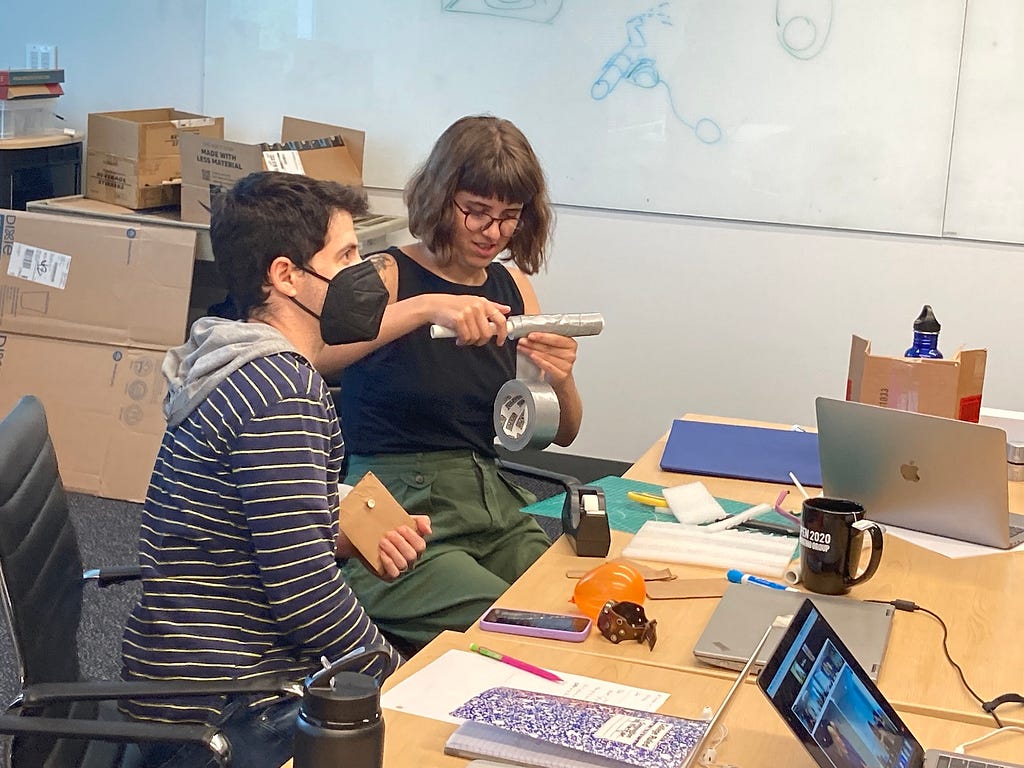
Empowering teachers to center students’ needs
Participants reflected that one of the most valuable aspects of the workshop was the collaborative environment. “These were all STEAM education professionals talking about our work and the problems we have and how to overcome them. How do we connect the learning to the community to make it real for kids?” says Patricia McGaffigan, a science coach for sixth through eighth grade teachers at Cambridge Public Schools in Massachusetts.
“We were able to talk to other participants about their viewpoints and how they planned to incorporate everything into their own classrooms,” says Kevin Crowthers, science teacher for eleventh and twelfth grade at Mass Academy of Math and Science in Worcester, Massachusetts.
One program module focused on design thinking, a human-centered approach to problem solving. The program instructors shared examples, then encouraged participants to brainstorm together and bounce ideas off each other, modeling what the pedagogy looks like in practice. “We expect students to do a lot, and to want to do it,” says McGaffigan. “Design thinking is a good way for educators to step back into the student role. You can see the difficulties that come up when you are working with people you don’t know. You can empathize, chunk things differently, and offer support on how to successfully collaborate.”
McGaffigan noted how she was able to foster a similar culture, where people are willing to share their successes, when she practiced her FSAEIP professional development workshop this fall. “What worked well is the fact that I didn’t tell them what to do,” she says. “Anyone likes that, no matter what age student you are. You’re going to be more invested. They could help each other out and not have to figure things out all by themselves.”
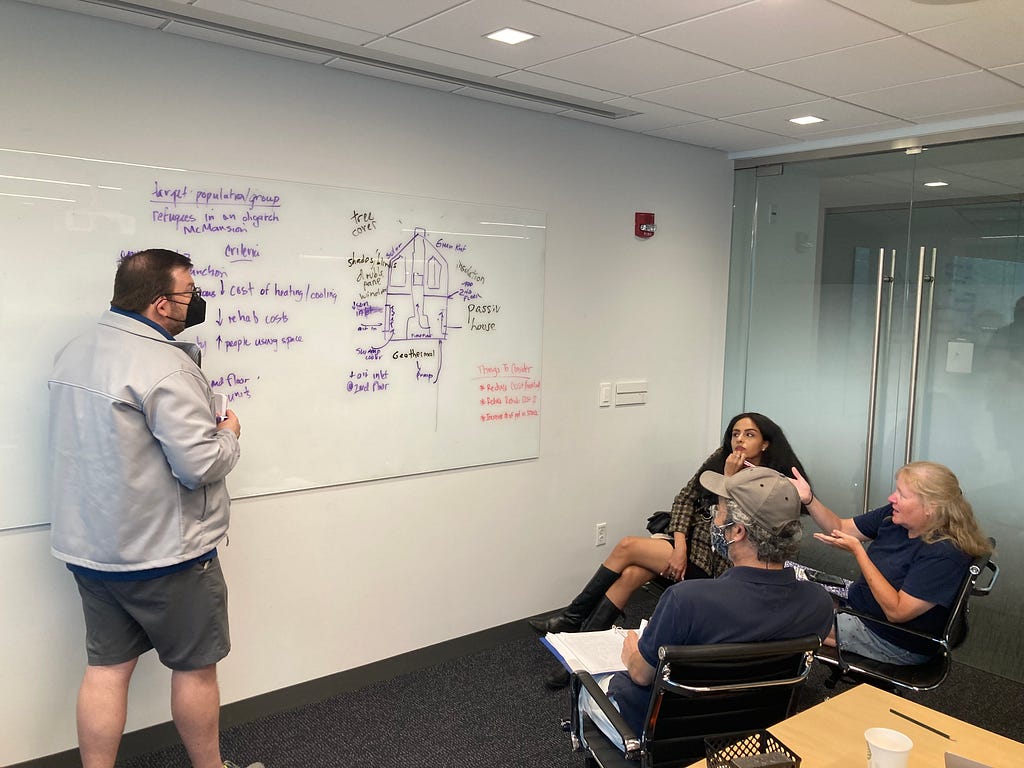
Providing a safe space for new ideas and experimentation
The program was designed to incorporate the “playtesting” method, where participants could take the time to play around with the lesson itself, something educators often don’t have time for during the school year. For the online portion of the workshop, participants experimented with Micro:bits kits (small, low-tech, and easily programmable computers that demonstrate how software and hardware can work together) at home and discussed how they might design a Micro:bits project for the classroom.
This approach exemplifies the effectiveness of inquiry-based learning experiences, which encourage all learners to gain a deeper understanding and appreciation of the ideas, practices, and possibilities. Greg DeFrancis from the MIT Museum joined the workshop to talk about inquiry-based learning and simple tactics to engage students without lectures. Inquiry-based learning combines student curiosity and the scientific method to increase engagement and critical thinking.
Crowthers says, “The opportunity to design is not something that a lot of students have experienced,” adding, “students become more empowered when this is their project.” His students also reported that this process helped them be less scared about making mistakes in their schoolwork.
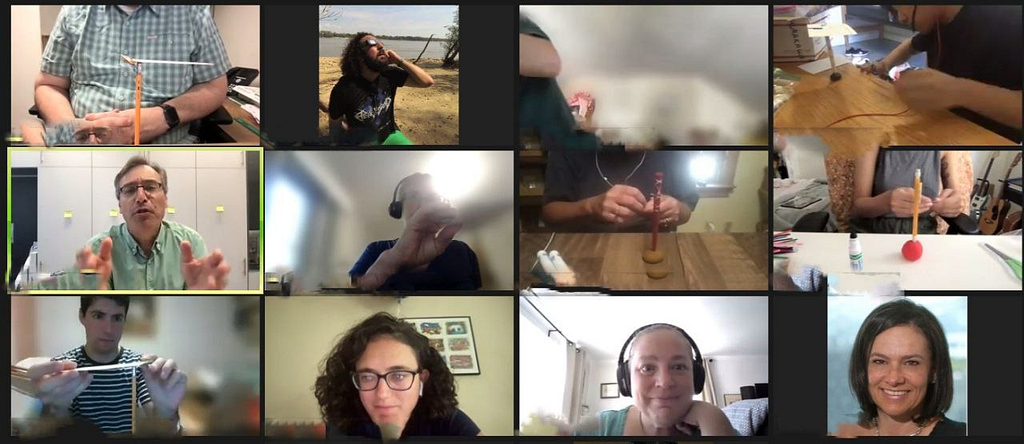
Socio-emotional learning and wellbeing
One of the sessions that aimed to help educators develop skills to become change agents in schools or classrooms introduced the educators to the compassionate systems framework. This framework offers models of thinking and teaching that combine contemplative socio-emotional learning, systems thinking and compassion, and establishes a set of practices that help teachers and students to apply these skills to important issues both within and beyond the classroom.
In addition to incorporating student voices into the assessment process, Crowthers also wanted to find other ways of incorporating equity into the classroom. “You have to be aware and alert and read students for messages they might not be able to communicate verbally. Sometimes you can read that stress in students’ eyes and expressions,” he says. The workshop gave him renewed determination to take the time to incorporate check-ins with students to gauge how they’re feeling at the beginning of class, getting them to talk by asking about their other classes or weekend plans.
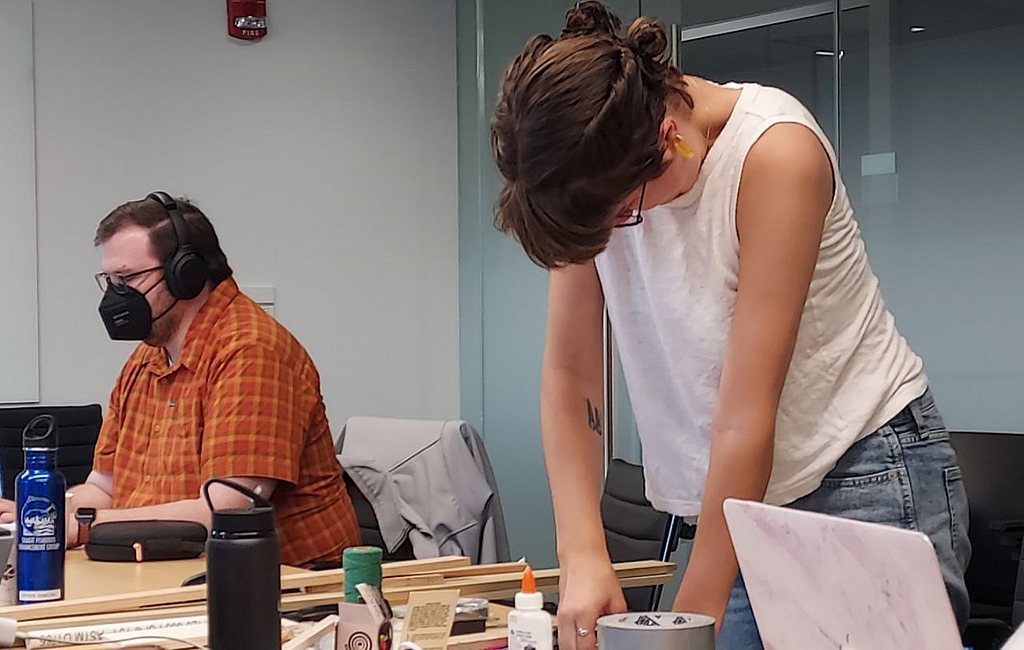
Iteration and implementation
McGaffigan works with middle school science teachers in Cambridge Public Schools to develop curriculum. She plans on presenting her project she developed at FSAEIP as an 8-hour professional development workshop in March 2023. One of Cambridge’s science curriculum goals is to create more connections across STEM subjects, including how to code for various scientific purposes. “Middle school students should have access to do coding,” she says. “That’s the reality for their futures, and in my opinion, it’s an untapped area. If we’re not offering it, it’s kind of a disservice to them.”
McGaffigan’s project during FSAEIP was an effort to increase educator familiarity with BBC Micro:bits and increase Micro:bit usage within classrooms of multiple disciplines. The endless programming possibilities of Micro:bits is a prime opportunity to let students lead their own inquiry-based learning when given open-ended prompts. “Micro:bits inspire students to be confident and competent,” she says.
After FSAEIP, McGaffigan was able to test her professional development workshop with Micro:bits during a course she teaches at Curry College for teacher candidates, which reinforced the importance of providing time for open exploration. She says the most important thing she learned from that iteration is to give students background in scaffolded challenges, because not everyone will have the same baseline knowledge and experiences. Now McGaffigan feels confident about developing pre-lessons for the Micro:bits workshop so learners have all of the necessary building blocks before moving on to the focus of the lesson.
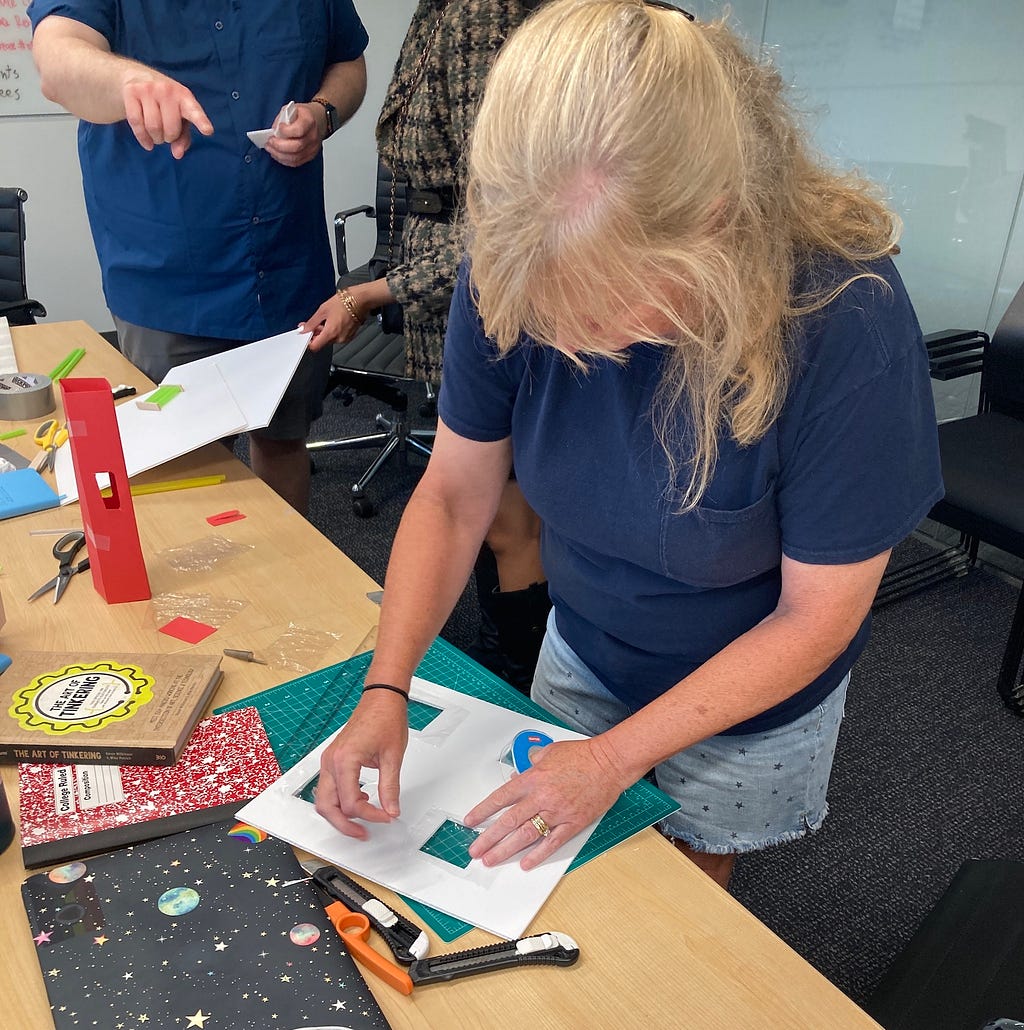
Crowthers’ initial goal for participating in FSAEIP was to improve the delivery of his engineering projects, so his project was creating a process for better transparency and increasing student voices with project assessments. He’s testing out his project this fall, aiming to develop methods that help students generate goals throughout the year that can be used to assess growth, mindset, and process — which combines elements of design thinking and inquiry-based learning. Also incorporating the lens of the compassionate systems work, this type of assessment can bring a clearer understanding of the student’s identity, their position within our community, and nurture the whole student (not just learning objectives).
The FSAEIP team is continuing to support educators’ implementation of their projects and activities by providing resources and mentorship into the fall. Researchers are also assessing the impact of each educator’s programming through surveys, interviews with the educators and mentors, and artifact collection.
McGaffigan says, “Educators have a tendency to stick with what we know. We’re uncomfortable being vulnerable and learning new things, and people like me in the cohort have to be convinced to try. But the benefits will outweigh the fears you have.”
Immersive training program at MIT encourages educators to go “full STEAM ahead” with innovative… was originally published in MIT Open Learning on Medium, where people are continuing the conversation by highlighting and responding to this story.

